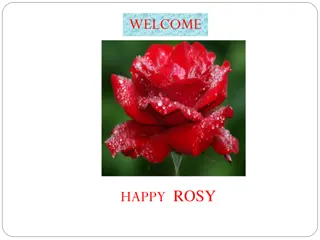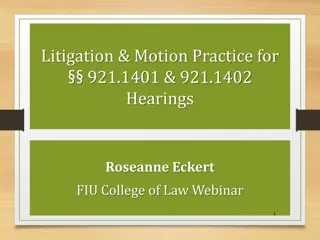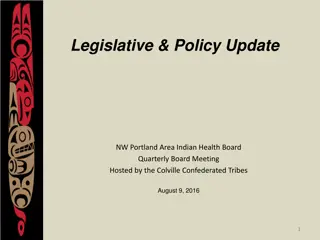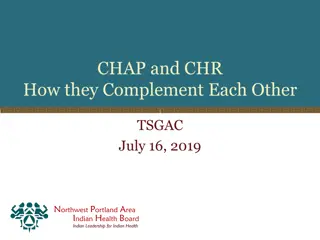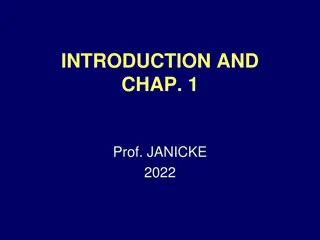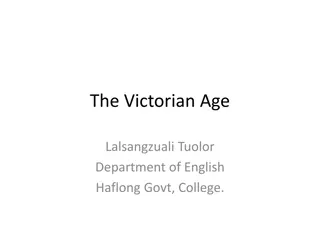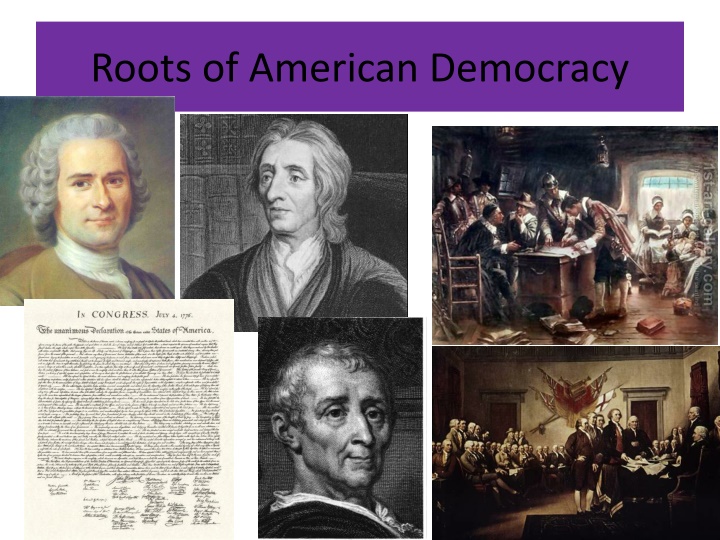
Influence of Enlightenment Philosophers on American Democracy
Discover the roots of American democracy from English heritage to the Enlightenment philosophers like John Locke, Jean-Jacques Rousseau, and Baron de Montesquieu. Explore the impact of documents like the Magna Carta and English Bill of Rights in shaping democratic principles. Learn how concepts of natural rights, social contract, and separation of powers laid the foundation for modern governance.
Download Presentation

Please find below an Image/Link to download the presentation.
The content on the website is provided AS IS for your information and personal use only. It may not be sold, licensed, or shared on other websites without obtaining consent from the author. If you encounter any issues during the download, it is possible that the publisher has removed the file from their server.
You are allowed to download the files provided on this website for personal or commercial use, subject to the condition that they are used lawfully. All files are the property of their respective owners.
The content on the website is provided AS IS for your information and personal use only. It may not be sold, licensed, or shared on other websites without obtaining consent from the author.
E N D
Presentation Transcript
Our English Heritage The Enlightenment Philosophers: 1) John Locke English writer Believed people were born free, equal, and independent, and possessing Natural Rights such as life, liberty, and property that no government could take away Believed in the Social Contract an agreement among the people of a society people give up some of their natural rights to the government and, in exchange, the government protects them
Our English Heritage 2) Jean-Jacques Rousseau French Philosopher Argued that people alone had the right to determine how they should be governed 3) Baron de Montesquieu - French Writer Developed the idea about dividing the branches of government into different parts to balance each other so that no one part can become too strong or threaten individual rights
Our English Heritage The Magna Carta in 1215, a group of English nobles forced King John to sign an agreement called the Magna Carta (Great Charter) The Magna Carta protected the nobles privileges and granted certain rights to all landholders like: Equal treatment under the law Trial by one s peers The Magna Carta also limited the power of the monarch by guaranteeing that no one would be above the law, not even the king or queen
Our English Heritage Parliament kings who followed John met regularly with the nobles and church officials, eventually the group included representatives of the common people this group developed into a legislature, a Lawmaking Body, known as Parliament In 1688, Parliament removed King James II and replaced him with his daughter Mary and her husband William (The Glorious Revolution) establishing Parliament as more powerful than the monarch
Our English Heritage English Bill of Rights (1689) guaranteed free elections to Parliament, the right to a fair trial, and banned cruel and unusual punishment Common Law a system of law based, not on written law, but on previous court decisions much of our law dealing with property, contracts, and personal injury come from English common law
Colonial Traditions of Self-Government The House of Burgesses (1619) the first elected representative assembly is formed in the Virginia Colony The Mayflower Compact (1620) the Plymouth Colony settlers wrote a plan of government for their colony Town Meetings citizens held town meetings to address local problems and issues an example of direct democracy
Colonial Traditions of Self-Government Fundamental Orders of Connecticut (1639) America s first written constitution it called for An assembly of elected representatives from each town to make laws Popular election of a governor and judges Early Colonial Governments A governor who was elected by the colonists or appointed by the King A legislature elected by free adult males as years passed the legislatures gained more power
Religious Reasons for Immigrating Colonists had many reasons for immigrating to America. Those diverse reasons impacted the type of government they created. Religious Dissenters many people followed a faith different from the official religion of England, the Anglican church. The Puritans settled Massachusetts. They considered themselves Pilgrims, or people on a religious journey. They did not believe in toleration or acceptance of other religions
Religious Reasons for Immigrating The Quakers founded Pennsylvania as a safe place for their religion A proprietor named George Calvert founded Maryland as a safe home for Catholics in1634 In 1636, a minister named Thomas Hooker led his church congregation out of Massachusetts and founded Connecticut for religious freedom In 1644, Roger Williams was forced out of Massachusetts for his religious beliefs and he founded Rhode Island
Economic Reasons for Immigrating While many people came to the New England Colonies for religious freedom, others, especially in the South, came for economic opportunities. Much of the Southern Colonies were settled by farmers who grew tobacco, rice, and indigo Many poor people came to the colonies as indentured servants. Colonists in America paid the transportation costs of the indentured servants and provided them with food, clothing, and shelter in exchange for their labor for a number of years
The Slave Trade The Plantation system of agriculture soon took hold in the Tidewater region of the Southern Colonies. It required more labor than immigration or indentured servitude could supply. This led to the development of the slave trade. Colonists soon passed laws strictly controlling the lives of slaves. They had no legal rights or protections like those given to indentured servants
The Slave Trade Colonists sent rum to Africa where it was traded for slaves and gold. The slaves were shipped to the West Indies and traded for sugar and molasses, which was used to make rum in the colonies The African s journey across the Atlantic was known as the middle passage. Many slaves did not survive this horrendous journey.
The New England Colonies After Plymouth was founded in 1620, a group received permission to start a colony in 1630. The Massachusetts Bay colony built the town of Boston. Soon Rhode Island, Connecticut, and New Hampshire had been founded. Most people in New England lived in towns. Farms were small because the winters were long and the soil was rocky and infertile. Many worked in small businesses like milling grain, shoemaking, or shop keeping
The New England Colonies The New England forests provided wood for shipbuilding which became a major industry New Englanders used the ocean s abundance for fishing and whaling The Puritan religion emphasized hard work, modest living, and personal virtues such as honesty, thriftiness, and obedience. These personal characteristics became know as the Puritan ethic
The Middle Colonies To the south of the New England Colonies, New York, New Jersey, Pennsylvania, and Delaware made up the Middle Colonies New York was originally a Dutch colony known as New Netherlands. The English seized the colony in 1664 and the King gave it to his brother, the Duke of York who ran it as a proprietary colony one in which the owner owned the land and controlled the government
The Middle Colonies The Duke of York gave the southern part of the colony to two men who named it New Jersey and ran it as a proprietary colony for a time. In 1702, New Jersey became a Royal Colony, one owned and ruled directly by the king In 1680, William Penn received a large parcel of land from King Charles who had owed a debt to Penn s father. Penn saw his colony as a place to put his Quaker ideals into practice In 1704 the three southernmost counties became Delaware
The Middle Colonies Farming was very important in the Middle Colonies because of its very fertile soil. The Middle Colonies became known as the Breadbasket colonies Sawmills, mines, and iron works were also important The Middle Colonies also attracted skilled settlers from Germany, Holland, and Sweden to increase industry
The Southern Colonies The Southern Colonies consisted of Virginia, Maryland, North and South Carolina, and Georgia Jamestown became a royal colony in 1624 and eventually becomes know as Virginia Maryland is founded in 1734 by Lord Baltimore and becomes a haven for Catholics South of Virginia, a group of proprietors founded Carolina. The officially become two royal colonies in 1729
The Southern Colonies Georgia was founded for two reasons. James Oglethorpe wanted a colony where English debtors and poor people could make a fresh start. The King wanted a military strong colony to serve as a military barrier between his colonies and Spanish Florida Two patterns of life emerged in the Southern Colonies the Tidewater and back-country both were based on agriculture and very little industry developed in the Southern Colonies
The Southern Colonies In the Tidewater the areas of flat low plains near the seacoast of Virginia and North Carolina. The many rivers made it easy to transport tobacco, rice, wheat, and indigo to the overseas markets The tidewater plantations used slaves for their extensive labor needs In the back-country, small farmers raised hogs, corn, wheat and tobacco mostly without slave labor The tidewater planters were outnumbered by small farmers, but had far greater wealth and political power
An American Identity The 13 colonies were settled by immigrants from several different countries and they differed in climate, terrain, and natural resources so they all were unique, however, an American identity did develop. Religion greatly influenced American life. Some colonies were led by religious figures (New England) while some separated religion from government by passing laws allowing religious toleration In the 1720 s a religious revival known as the Great Awakening swept through the colonies. It split many congregations and religions such as Baptists and Methodists grew stronger
An American Identity Education Colleges such as Harvard in Massachusetts, Princeton in New Jersey, and William and Mary in Virginia were created to train ministers Some colonies levied taxes to pay for public schools and some religious groups set up schools as well Slaves were strictly forbidden from being taught to read or write by the slave codes
An American Identity The family was the foundation of colonial society. Men were the formal heads of their families which were often large. Most women worked in the home taking care of the children and household chores. On farms, women often worked with their husbands. Some women in towns had jobs outside the home as maids, cooks, nurses, teachers, shopkeepers, or seamstresses. Women had few legal rights and could not vote. Men managed community and church affairs.
Ideas About Government The Enlightenment and Great Awakening both influenced colonists to believe in egalitarianism, or equality. One element of this spirit of egalitarianism was the belief of many colonists that they possessed all the traditional rights of native people. They supported Parliament because they felt it would protect them from the King. They were governed by official appointed by the King and had no say in British trade and tax policies
Ideas About Government The English government had permitted new patterns of land ownership, new types of worship, and new kinds of government in its colonies. Colonists became used to self-government and gradually came to think of it as their right. By 1733 all thirteen colonies had been established with their own constitution. All had representative governments. Massachusetts and Pennsylvania had documents that protected individual rights and would serve as the basis for the US Constitution and Bill of Rights
Colonial Resistance Mercantilism the theory that a country s power depends on its wealth a nation should sell more goods to other countries than it buys a nation needs colonies to provide it with cheap raw materials and a market to sell finished goods. The Navigation Acts were a series of laws passed in the early 1660 s that put the theory of mercantilism into practice
Colonial Resistance Britain and France had fought since the late 1600 s for supremacy in Europe. Their European war eventually spread to their colonies in America and the rest of the world. At a conference in Albany, New York, Ben Franklin proposed a plan of union where the colonies would agree to come together to defend themselves. The plan was not approved, but this is the first major attempt to unite the colonies.
Stamp Act Congress Great Britain fought a long, costly war on several continents with France from 1754 to 1763. To avoid further conflict with the Native Americans who had supported the French, the British forbid colonial settlers to settle west of the Appalachian Mountains. (Proclamation of 1763) To pay off their debts from the war, the British passed the Stamp Act of 1765. It required colonists to attach expensive tax stamps to all newspapers and legal documents. The Quartering Act required the colonies to provide barracks and supplies to British troops
Stamp Act Congress To protest the acts, the colonists boycotted refused to buy British goods Organizations like the Sons of Liberty were formed throughout the colonies to oppose the Stamp Act In October of 1765, nine of the thirteen colonies sent representatives to the Stamp Act Congress in New York City. They sent a letter to King George III declaring their opposition to the Act Parliament repealed cancelled the act
More Acts of Parliament Parliament quickly passed the Declaratory Act of 1766 which stated that Parliament had the right to tax and make all decisions for the American colonies In 1767, Parliament passed the Townshend Acts. They included legalizing writs of assistance to assist customs officials in catching smugglers. The writs were general search warrants that enabled customs officers to enter any location looking for evidence. Colonists protested the acts and sometimes violence occurred the Boston Massacre is an example March 5, 1770 five colonists were killed
Boston Tea Party In 1773, Parliament passed another measure. The Tea Act gave the British East India Company the right to ship tea to the colonies without paying most of the taxes usually placed on tea. This made their tea cheaper than the tea of colonial merchants In December of 1773, a group of angry colonists dressed as Native Americans dumped 342 chests of British tea into Boston Harbor.
The Intolerable Acts In response to the Boston Tea Party, the British passed the Coercive Acts, which the colonists called the Intolerable Acts These acts restricted the colonist s civil rights, including the right to trial by jury These acts were aimed mostly at Boston, but they worked to unite the colonists Every colony, but Georgia, sent representatives to a meeting in Philadelphia
The First Continental Congress The meeting lasted seven weeks They sent a letter to the King demanding the colonists rights be restored They made plans to extend the boycott of British goods They made plans to meet again if their demands were not met King George responded with force and battles broke out between colonists and British troops at Lexington and Concord
The Second Continental Congress The Congress met in Philadelphia in May 1775. Many delegates pushed for the colonies to declare independence. While they debated, Thomas Paine published Common Sense a pamphlet that argued for independence By 1776 the Congress was acting as a government for the colonies. They formed a committee to draft a document to announce the independence of the United States
The Declaration of Independence The committee picked Thomas Jefferson to do most of the work. The document argued that the King did not look after the interests of the colonies. It contained a long list of wrongs done by the King against the colonies. It explained why governments existed, how the British government had failed them, and how the colonists then had a right to form a new government













